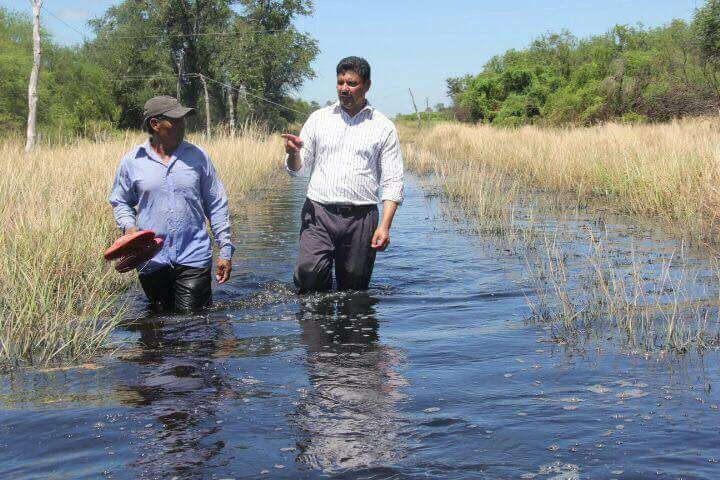
Boquerón, Paraguay – Unprecedented torrential rains have triggered severe flooding in the western Chaco region of Paraguay, leaving over 8,500 families displaced in the departments of Boquerón and Alto Paraguay. The majority of those affected are indigenous communities residing in areas including Puerto Casado, Carmelo Peralta, and within Alto Paraguay, Santa Teresita, Macharety, San Agustín, Yasyendy de Pozo Hondo, La Patria, 10Cue, Santa Rosa, Ruta Picada 500, and various locations within Mariscal Estigarribia.
These regions are currently facing critical conditions as floodwaters have rendered roads impassable, effectively cutting off access and leaving residents stranded without essential supplies such as food, clean water, and temporary shelter. The situation is particularly dire in Boquerón, where approximately 8,000 individuals are completely isolated. This isolation is compounded by significant distances from urban centers, poor road infrastructure, high levels of poverty, limited governmental support, and scarce local resources.
Specific indigenous communities and areas severely impacted include 65 families (approximately 350 individuals) of the Manjui tribe, 450 families (around 2,250 people) in Santa Teresita, 180 families (900 people) in Santa Rosa, 900 families (4,500 people) in Laguna Negra, and 70 families (about 355 people) in Macharety. The situation in Alto Paraguay mirrors this crisis, with some areas only accessible by tractor and 85 families cut off and isolated due to the floodwaters.
In response to the escalating disaster, the local governments of Alto Paraguay, Boquerón, and Villa Hayes, along with the central government, have declared a state of emergency in the affected areas and have initiated emergency relief efforts. Across the Chaco Paraguayo, some displaced residents remain in their flooded villages, while others are isolated and awaiting assistance, and a number have sought refuge in temporary camps established on government-owned land.
Plan International Paraguay has launched an emergency response to address this humanitarian crisis and is conducting on-the-ground assessments to determine the most urgent needs of the affected communities. The international child rights organization will focus on providing essential aid, including food, clean water, hygiene kits, and temporary housing, as well as offering child protection services and psychosocial support.
Experts suggest that the severity of the Chaco floods has been exacerbated by the impacts of climate change, and they warn that similar natural disasters could become more frequent in the future. Addressing the root causes of such events and ensuring sustained attention and support for the affected communities are now critical priorities.
[Copyright (c) Global Economic Times. All Rights Reserved.]



























